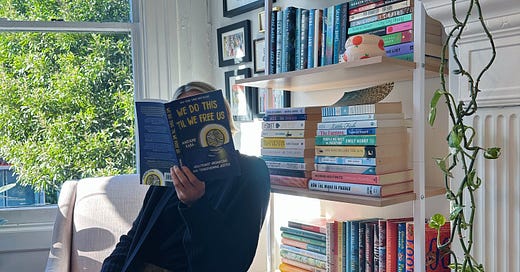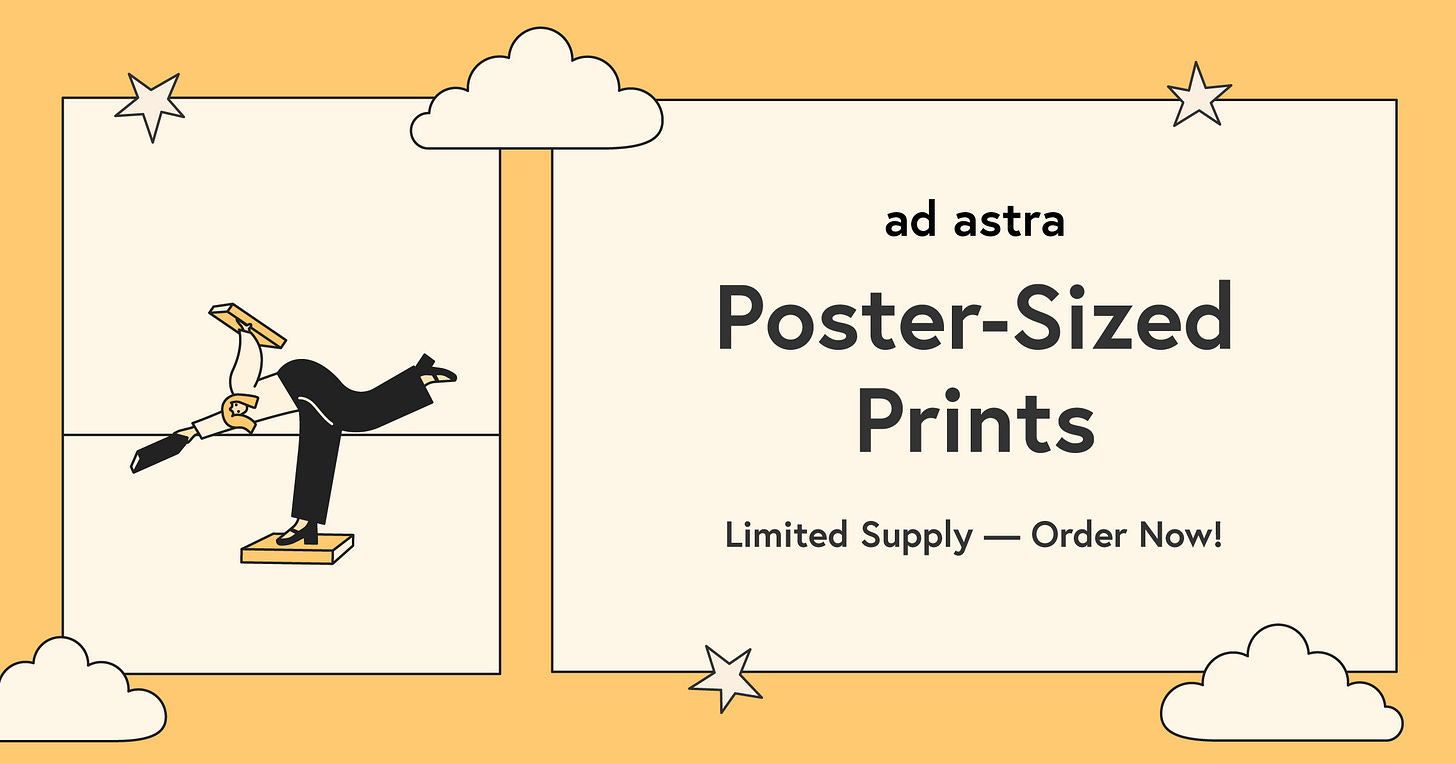We Do This ‘Til We Free Us and Imagination
"Our charge is to make imagining liberation under oppression completely thinkable."
[Dear readers: This issue contains discussions of white supremacy, police brutality, racism, ableism, and sexism.]
“Hope isn’t an emotion…hope [is] a discipline…In the world we live in, it’s easy to feel a sense of hopelessness, that everything is all bad all the time, that nothing is going to change ever, that people are evil and bad at the bottom…I choose to think a different way, and I choose to act in a different way.” Throughout We Do This ‘Til We Free Us, Mariame Kaba uses the lens of hope to not only discuss the abolition movement, but to assert why we too must utilize hope in such a way: because the world is full of violence, but also love, especially with regards to community care and power.
At a time when hope for so many feels futile, when the future is in some ways clearer than ever, but also so unsure, when our neighbors feel distant, but we know we need community, Kaba’s words and reflections on decades of activism serve as both balm and fuel. The collection shares tools and ideas for what a transformative future could look like, encouraging readers to play their role in imagining and bringing it to fruition. It helps us all not just regain hope, but take steps to ingrain it within our everyday actions as, in Kaba’s words, a discipline.
Imagination as power
“Our charge is to make imagining liberation under oppression completely thinkable, to really push ourselves to think beyond the normal in order for us to be able to address the root causes of people’s suffering.”
As readers, we constantly immerse ourselves in world building. Whether when we pick up a work of fiction or nonfiction, we place our trust in the narrator and the story we are being told. We suspend our own ideas of reality, and see what they see. In fantasy and sci-fi, we go so far to trust in completely different worlds, absorbing their societal ways and systems of power. We critique, analyze, and root for the protagonists that aim to build something better.
“Prison itself is a reform…[they] haven’t always existed,” Kaba says in an interview with Jeremy Scahill. Far too often, we accept systems or people in power or anything, really, because we’ve been told that’s just the way things are. We are coached to think that these problematic ways have always been around, and that they are for the best, even when we know that isn’t true. Why are we able to suspend our disbelief when we read, but not when we look at the world around us?
Many readers are turning to Octavia Butler’s Parable of the Sower, calling attention to our present day that her book from the 90’s captures so accurately. The story depicts a young woman who must leave behind the community she has grown up in, setting off amidst a world of climate destruction, political violence, and a crumbling economy to build a new home. With powerful ideas about what a better world could look like, and how to start building toward it, she and a newfound family settle down together. The novel ends in fear, yes, but also in hope and imaginative construction.
We readers can use our imagination—shaped in part by the collective ideas we’ve amassed through reading—to build and push for stronger, more equitable systems of power. Imagination, scientific research, and life experiences can and must all coexist. And having critical conversations with others, joining mutual aid organizations, and evaluating our day to day choices are all places to start.
“Changing everything might sound daunting, but it also means there are many places to start, infinite opportunities to collaborate, and endless imaginative interventions and experiments to create. Let’s begin our abolitionist journey not with the question ‘What do we have now, and how can we make it better?’ Instead, let’s ask, ‘What can we imagine for ourselves and the world?’ If we do that, then boundless possibilities of a more just world await us.” —Mariama Kaba, We Do This ‘Til We Free Us
If you liked We Do This ‘Til We Free Us, read…
Let This Radicalize You: Organizing and the Revolution of Reciprocal Care by Kelly Hayes and Mariame Kaba
Are Prisons Obsolete? by Angela Davis
Becoming Abolitionists: Police, Protests, and the Pursuit of Freedom by Derecka Purnell
Other books we are reading (or hope to read) this month
✅Let This Radicalize You: Organizing and the Revolution of Reciprocal Care
✅ The Seas
🗓️Dr. No
🗓️Mutual Aid: Building Solidarity During This Crisis (and the Next)
🗓️Jonathan Strange & Mr. Norrell (my annual “big book over the holidays” choice!)
Books new to our TBR
Cobalt Red: How the Blood of the Congo Powers Our Lives by Siddharth Kara
No Is Not Enough: Resisting Trump’s Shock Politics and Winning the World We Need by Naomi Klein
Rental House by Weike Wang
Other publishing updates
Penguin Random House has raised entry-level salaries to $51,000/year, and has updated other salary bands as well. They now have the highest entry level salary of the Big Five, but it still falls far below a living wage in New York City (where most employees are required to work).
A new startup “publisher,” Spines, aims to publish 8,000 books in 2025…overwhelmingly by utilizing AI. At least one of the co-founders has supported Trump and shared zionist sentiments. As expected, many people have many thoughts about all of this.
Thanks so much for taking the time to read! If you enjoyed this newsletter, please share with friends, and consider subscribing if you have not yet already. Also, in case you missed it, we have launched prints! Learn more and place an order here.
We’ll be taking a break from our end of month newsletter, but will be back in the new year with more reading thoughts.
Xx,
ad astra




